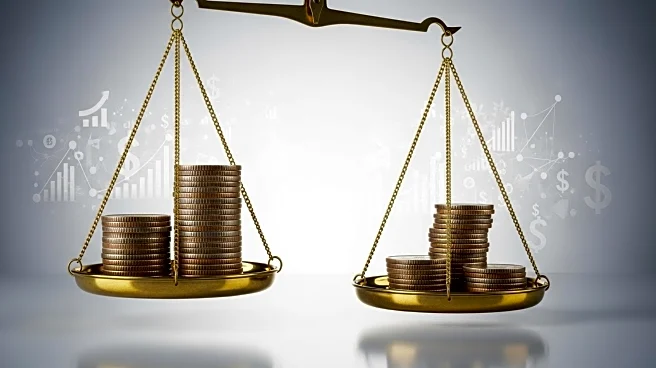What's Happening?
A recent study conducted by University of California, Berkeley economists Emmanuel Saez and Gabriel Zucman reveals that billionaires pay a lower effective tax rate compared to the average U.S. taxpayer. The research, published in the National Bureau of Economic Research, shows that individuals on the Forbes 400 list paid an average tax rate of 24% from 2018 to 2020, while other taxpayers paid a 30% rate. This disparity is attributed to the tax structure favoring capital gains and business income, which are taxed at lower rates than earned income. The study coincides with President Trump's recent tax legislation, which further benefits high earners by increasing the estate-tax exemption and building on the Tax Cuts and Jobs Act of 2017.
Why It's Important?
The findings underscore the ongoing debate about tax equity and the economic impact of tax policies favoring the wealthy. While the top 1% of earners contribute significantly to federal income taxes, the lower effective tax rate for billionaires highlights potential inequalities in the tax system. This has prompted discussions about implementing a wealth tax to address income disparity, supported by lawmakers like Senators Elizabeth Warren and Bernie Sanders. Critics argue that such taxes could hinder entrepreneurship and investment, raising concerns about the broader economic implications.
What's Next?
The study's results may fuel legislative efforts to introduce a wealth tax targeting the ultra-rich, aiming to increase tax progressivity. However, such measures are likely to face opposition from billionaires and their influential networks. The ongoing debate may lead to further scrutiny of tax policies and their impact on economic inequality, potentially influencing future tax reforms and public policy decisions.
Beyond the Headlines
The study highlights ethical considerations regarding tax fairness and the role of wealth in shaping public policy. The influence of billionaires in opposing wealth taxes raises questions about democratic representation and the balance of power in policymaking. Long-term shifts in tax policy could redefine economic structures and societal norms, emphasizing the need for equitable taxation.












